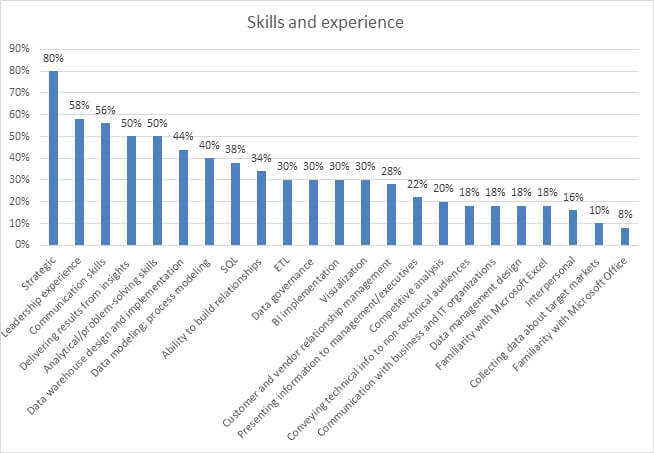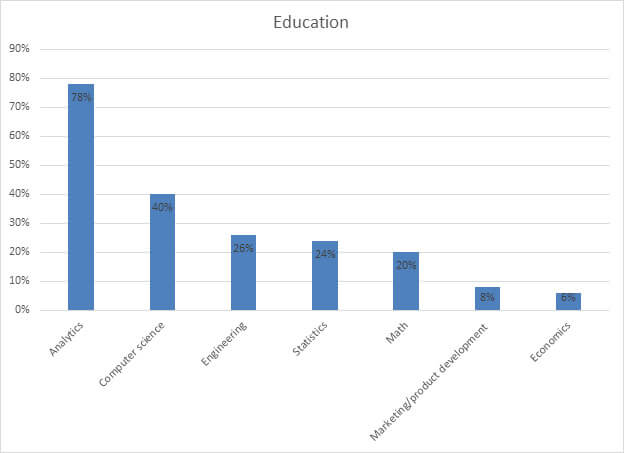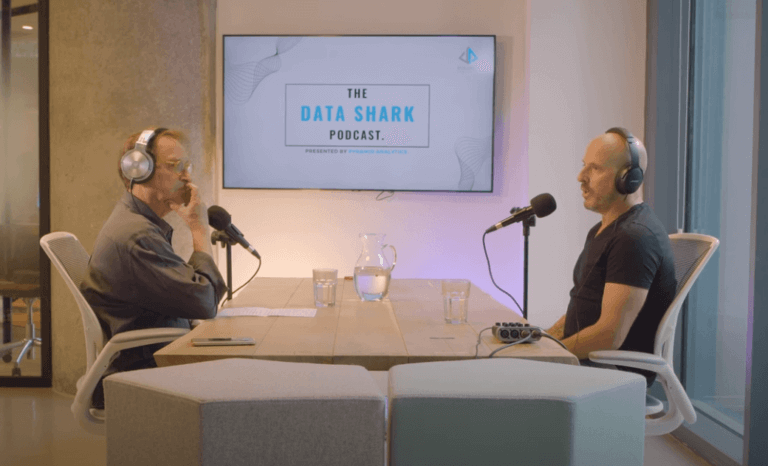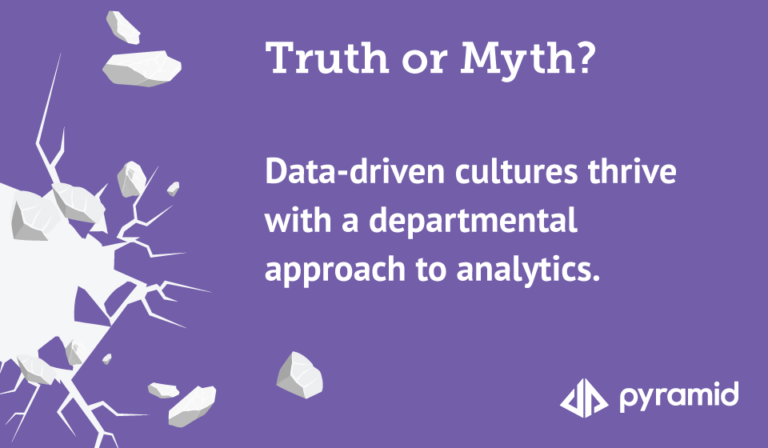This article is part of a series that explores the role of a BI owner/BI program director/BI practice director. Topics included in this series over the coming weeks are 1) Skills that are in demand for this role, 2) Pain points that BI owners commonly face, 3) Career advancement for BI owners, 4) Common examples of BI organization charts, and 5) Budgeting for expenses such as headcount, consulting, services, and tools.
Inviting your participation! In the coming weeks, we’ll also start conducting a survey to gather additional information related to a career as a BI director, common pain points, and other topics. For those who have participated, we’ll publish the results, along with a report and other related resources. Stay tuned!
Recently there have been numerous articles about the surging demand for qualified data scientists, how universities are responding to the shortage with new programs in data science, the high salaries that data scientists can receive, and the like. Data scientists are so in demand that recruiting techniques on social media, like crowd-sourcing and competitions based on an assigned task, are among the tactics used to find the necessary talent beyond the traditional resume and interview.
However, it’s not just the task of finding data scientists that are challenging these days. It’s also difficult to find well-qualified, well-rounded BI owners/directors who must possess the creativity and problem-solving skills to address and manage a host of challenges. (In the second article of this series, we’ll look more closely at these challenges and pain points; stay tuned.)
In this article, I’ll drill down into the role of the BI director, focusing on the specific skills, experience, and educational background that are currently trending as highly important for this role. This information is based on research of numerous job descriptions recently posted on LinkedIn.
Breakdown of desired skills and experience
What are the top skills and experience listed for BI owners in recent job descriptions? On the flip side, what skills and experience might be desired, but appear less frequently?
The chart at the end of this section shows the breakdown. It’s also interesting to tie the skills and experience with some of the typical tasks that might be involved.
80% of job descriptions for BI directors call for strategic ability. A BI director must be able to craft a compelling vision and then carry it out in a well-developed strategy. The BI director might be required to develop a game plan for optimizing the BI platform by determining how best to use existing data analytics, architecture, and technology and where to make improvements. Or, this person could be in charge of establishing best practices for BI, data warehousing, and data governance.
And not surprisingly, more than half—58%—of the job descriptions for BI directors explicitly spell out leadership capabilities and experience. This could involve leading the way in implementing and delivering effective BI solutions or coaching a team on the pros and cons of different types of analytics and data modeling and providing mentorship on extrapolating and examining insights from large data sets. It might entail providing thought leadership to partners and stakeholders in determining which BI solutions will enable the enterprise to achieve defined business goals or an ability to influence the organization and partners and to push back where necessary.
Also near the top of the list are communication skills, which are called out in 56% of cases. However, “communication skills” is an overarching category that includes skills that were also listed in job descriptions, such as presenting information effectively to management/executives, conveying technical information to non-technical audiences, and communicating needs with business sponsors and IT/technical organizations to deliver highly effective BI. For instance, a BI director might need to convey the return on investment (ROI) of BI to management and executives. In other cases, this person might need to communicate with non-technical users about the impact of complex analysis on key performance indicators (KPIs) of the business.
Also frequently appearing are the ability to deliver results from gathered insights and analytical/problem-solving skills, both of which occur in 50% of the job descriptions examined.
Data warehousing, data warehouse design, and data warehouse implementation appear in 44% of the listings. A BI director might need to have the skills to assess, manage, and optimize the design and delivery of data warehousing. Often listed were strong conceptual knowledge of data warehousing, BI systems, and processes, and ETL (extract, transform, load). This person might lead design efforts, work with the data warehouse director to develop an enterprise data warehouse, or gather, design, and prioritize requirements for developing the data warehouse.
Experience with data modeling and process modeling appears 40% of the time. For instance, the BI director might need to be experienced in managing large data sets of multiple sources or managing the design, development, and implementation of an information system. This person might need to develop BI applications and data models, manage and mentor the development of data modeling in the enterprise, or design, develop, and document the data model, associated metrics, and information delivery model.
Knowledge of SQL Server weighs in at 38%. This knowledge could include intermediate to advanced skills in SQL query language or data development skills with SQL. In some cases, experience with SQL Server Reporting Services (SSRS), SQL Server Analysis Services (SSAS), and SQL Server Integration Services (SSIS) was listed, as was the ability to incorporate SQL data sources within Microsoft Office products.
The ability to build relationships, appearing in 34% of the job descriptions, is certainly key to the role of a BI owner since a crucial part of the job involves interacting with partners, stakeholders, vendors, and teams both externally and internally. Being able to build cross-functional bridges to communicate and carry out the vision and strategy or being capable of identifying areas of opportunity and partnership to increase site traffic and online presence are listed. The BI director might also need to recommend and design solutions according to business needs and IT needs/technical architecture. Having an effective relationship and collaborating with both the business and IT will be mutually beneficial and foster success.
At 30%, knowledge of ETL is essential in many cases. The director might be involved (directly or indirectly) in ETL design and development to support business applications, might manage or provide thought leadership to a team of ETL developers, or could supervise a BI analyst who assists in maintaining ETL scripts. The BI owner might need to oversee and ensure effective data flow and automated, scheduled ETL processes or streamline them to make them more efficient.
Data governance, which is increasingly being recognized as an absolute essential in a solid BI and analytics program, appears in 30% of job descriptions. Whether it’s a BI director providing guidance on best practices related to data governance (along with data quality and master data management), establishing and enforcing corporate policies related to data governance, or building a foundation and empowering the team to become a Center of Excellence for data governance and data management.
Skills and experience with BI implementation are listed in 30% of the descriptions examined. Included are experience managing front-end BI tools and building reports, strong knowledge of BI platforms, and demonstrated ability to implement business intelligence. The BI owner must often define, implement, and oversee the daily management of the BI technologies that are used, in addition to evaluating whether critical functionality, data governance, and other KPIs are achieved and maintained. When these levels are suboptimal, the BI director would need to evaluate new technologies and assess how to improve.
At 30%, knowledge of visualization is very often important. Some descriptions call for experience using third-party visualization packages,
For other skills and experience and overall breakdown, see the chart that follows, which shows the most frequently listed to least frequently in the job descriptions researched here.

Breakdown of desired educational background
When it comes to desired educational background, analytics tops the list, appearing in 78% of the job descriptions researched here, followed by computer science, engineering, statistics, math, marketing/product development, and economics.
When engineering was mentioned, it often occurs in a combination similar to “engineering, computer sciences, statistics, math, or a related field.”
18% of the job descriptions mentioned having a master’s degree, but in two-thirds of these cases where it’s listed, it is something that is preferred rather than required; in most cases, a bachelor’s degree is sufficient.
The following chart shows the breakdown of desired educational background.

A powerhouse role in the enterprise
Finding well-qualified, well-rounded BI owners/directors isn’t easy. It’s a challenge, however, that yields large rewards in an industry that’s ever-expanding. With the right skills, experience, and educational background, the BI owner has an exciting opportunity to shape, monitor, and readjust the BI and analytics program or practice of an enterprise. This person can aspire to—and inspire teams to—become a BI and Analytics Center of Excellence, with governed, quality data that’s used in gathering and acting upon intelligent insights, and delivering tangible results and value.
It’s a position of noteworthy influence and scope where specific skills, strategies, actions, creativity, and curiosity can empower an entire team, organization, or enterprise, resulting in significant ROI to the BI efforts of an enterprise.














